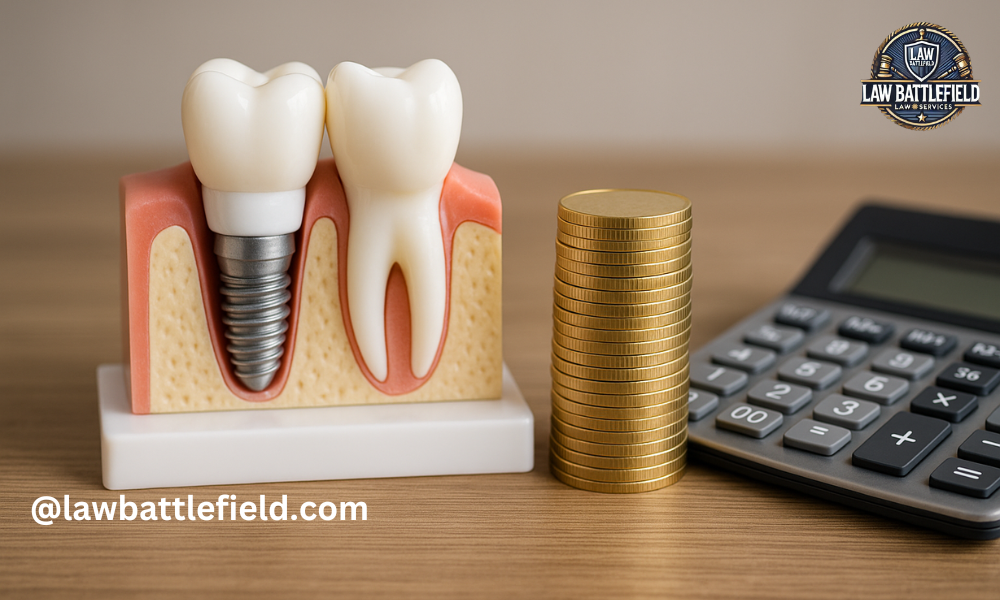When considering dental restoration options, cost is a significant factor for many patients. However, the true value of a treatment is not only measured in monetary terms but also in the quality of life improvements and long-term benefits it provides. Dental implants have become increasingly popular as a more permanent solution for missing teeth, but assessing their true value requires a thorough understanding of the dental implants cost compared to their benefits.
The Cost Of Dental Implants
The immediate consideration for most patients looking into dental implants is the upfront cost. It’s no secret that implants can represent a significant investment. When evaluating the dental implants cost, several factors come into play, such as the number of implants needed, the material used for the implant, preparatory surgeries (like bone grafts), and geographic location. These aspects can contribute to a wide range of prices for this dental procedure.
Comparative Longevity Of Dental Implants
One of the most compelling arguments in favour of dental implants is their durability. Unlike dentures or bridges that may need to be replaced every 5 to 10 years, dental implants could last a lifetime with proper care and maintenance. This longevity can offset the high initial costs over time, ultimately presenting a financially sound option in the long run.
Impact On Oral And Overall Health
Dental implants offer benefits beyond their longevity. They also contribute positively to oral health. Since implants are anchored into the jawbone, they provide stimulation similar to natural teeth, preserving bone structure and preventing deterioration. By maintaining a healthy jawbone and providing support for adjacent teeth, implants help uphold the structural integrity of the mouth. This is a critical factor that is often overlooked when considering the dental implants cost.
Enhancement Of Quality Of Life
Quality of life is another substantial benefit that dental implants bring to the table. With their natural look, feel, and function, implants empower patients with renewed confidence and comfort. The ability to speak, eat, and smile without the constraints or embarrassment that can come with other dental restoration options is invaluable to many.
The Psychological Aspect
Further to the tangible benefits, the psychological impact of having a full set of functioning teeth cannot be understated. Dental implants can restore not only a person’s smile but also their self-esteem, impacting social interactions and mental well-being in profound ways.
Investment In Professional Expertise
Part of the investment in dental implants goes towards the professional expertise required for this intricate procedure. The process of dental implant surgery demands a high level of skill and precision, as well as the use of advanced technology. This often includes costs for diagnostic imaging, the design of custom implants, and meticulous surgical techniques.
Maintenance And Care
Another aspect that should be factored into the cost-benefit analysis is the maintenance required for dental implants. Just like natural teeth, they require regular cleaning, flossing, and check-ups. However, the long-term maintenance cost for dental implants can be less demanding than that for other dental restoration options, which may require more frequent adjustments or replacements.
Ongoing Savings
By maintaining good oral health and function, dental implants can lead to potential savings in other dental procedures. For example, preventing bone loss in the jaw could reduce the need for extensive dental work in the future, thereby saving money in the long term.
Averting Potential Complications
Choosing lower-cost alternatives may seem financially savvy in the short term, but it may lead to potential complications that accrue additional costs. Alternatives such as bridges can lead to damage to the surrounding teeth, ultimately necessitating further dental work. In contrast, dental implants stand alone and do not rely on adjacent teeth for support.
Consideration Of Financing Options
For those concerned about the initial dental implants cost, many dental practices offer financing options. This could alleviate some of the immediate financial burden and make dental implants more accessible. It is essential to discuss these possibilities with your dental provider to understand what terms are available.
The Value Of Personalised Care
Every patient requires a tailored approach to their dental needs. The investment in dental implants includes personalised care and the adaptation of the dental work to the individual’s specific condition and requirements. This customisation is vital in achieving the best possible outcome from the procedure.
The Final Analysis
When evaluating the cost of dental implants, one must consider not only the present financial implications but also the long-term benefits. The upfront investment can be significant, but it is necessary to recognise the comprehensive advantages that come with this choice. Dental implants provide a sturdy, viable, and aesthetically pleasing solution for tooth loss, with potential cost savings over a lifetime due to their durability and the prevention of further dental issues.
Conclusion
In conclusion, understanding the real value of dental implants requires a thorough examination of both costs and benefits. While the initial dental implants cost may be substantial, the long-term payoff, in terms of improved oral health, enhanced quality of life, and potential cost savings, presents a compelling case. Prospective patients are encouraged to consult with their dental professionals to gain a comprehensive understanding of dental implants as an investment in their health and happiness.
Was this article helpful? Check out more on Lawbattlefield.com





